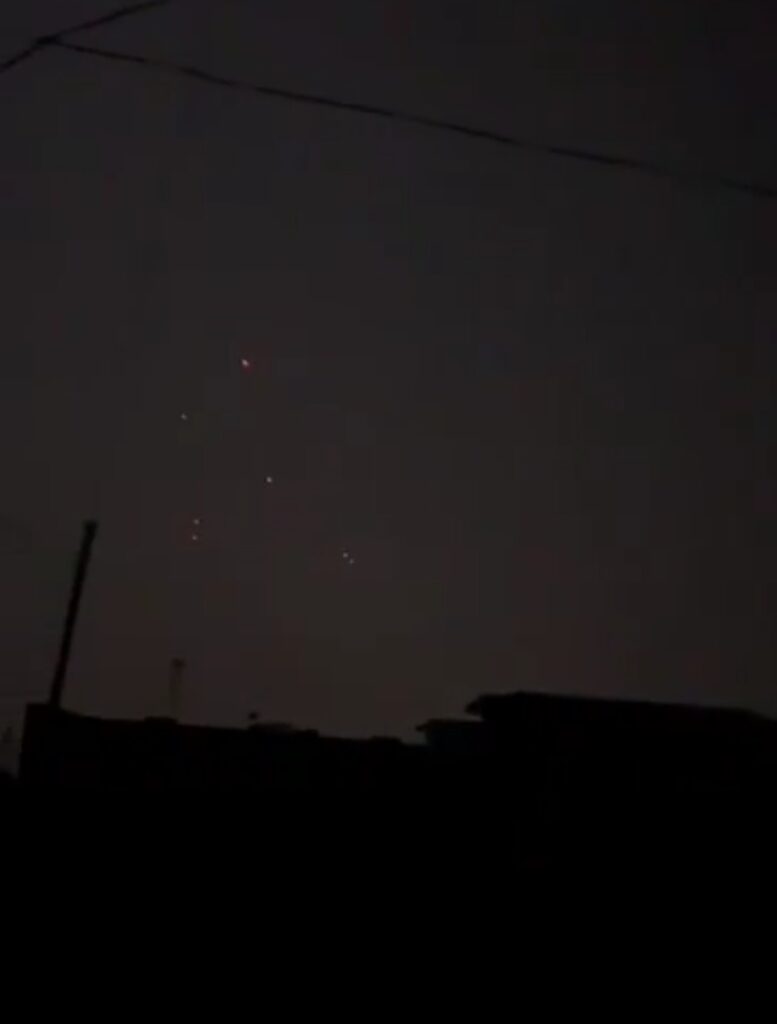Tensions Soar as Pakistan Launches Drone and Missile Attacks on India: India Responds with Robust Defense with S-400
Watch the Video

New Delhi, May 9, 2025 – The India-Pakistan border saw a sharp escalation overnight on May 7-8, 2025, as Pakistan launched a series of drone and missile attacks targeting Indian military installations across northern and western India, including Awantipora in Jammu and Kashmir, Bhuj in Gujarat, and Samba town in Jammu. India’s armed forces mounted a swift and effective defense, intercepting the threats and intensifying the ongoing conflict between the two nuclear-armed neighbors.
Pakistani Offensive and Indian Countermeasures
Indian military sources reported that Pakistan deployed missiles and drones, targeting key military stations in Jammu, Udhampur, Pathankot (Punjab), Rajasthan, and Samba.
In Samba town, residents were jolted by the sound of explosions at approximately 7:45 PM, 12:30 AM, and 4:00 AM, caused by India’s advanced interceptor systems neutralizing incoming drones or missiles in the airspace. Air raid sirens blared three times during the night, heightening local anxiety, though no damage or casualties were reported in Samba due to the successful interceptions.
The Indian Air Force (IAF) and air defense systems, including the S-400, were activated across the targeted regions, neutralizing multiple threats. The Indian Army confirmed “no losses” and is analyzing debris from downed drones and missiles.
The IAF reportedly shot down one Pakistani F-16 fighter jet, two JF-17 aircraft, and a Pakistani Airborne Warning and Control System (AWACS) operating in Punjab province. Eight rockets targeting Jammu were intercepted, and drones attempting to strike Jammu Civil Airport and Jammu University were neutralized.
Wing Commander Vyomika Singh, in a press briefing, confirmed that Pakistan’s air defense systems were “neutralized” during India’s counteroffensive, noting intensified Pakistani shelling across the Line of Control (LoC). Residents in Jammu, including Samba, were urged to relocate to safer areas amid ongoing alerts.
Pakistan’s Claims and Denials
Pakistan’s Inter-Services Public Relations (ISPR) claimed to have downed 5 Indian drones, identified as Israeli-made Heron MK 2 and Harop models, across Lahore, Rawalpindi, Bahawalpur, and Karachi. Pakistan condemned India’s actions as “reckless provocations,” reporting one civilian death and injuries in Sindh due to drone activity.
Pakistan’s state media denied missile strikes on Indian-administered Kashmir, labeling such reports “false and baseless.” However, Islamabad alleged 31 deaths and 57 injuries from Indian strikes on Pakistani territory since May 7, including civilian casualties in Punjab and Pakistan-administered Kashmir.
International Concerns and Regional Impact
The escalating conflict has sparked global concern, with the United States, United Nations, and others calling for de-escalation. UN Secretary-General Stéphane Dujarric urged “maximum military restraint,” warning of the catastrophic risks of a full-scale India-Pakistan war.
The strikes have disrupted regional stability, with Pakistan intermittently closing its airspace, impacting international flights. Over 1,000 religious schools in Pakistan-administered Kashmir have closed, and residents are preparing bunkers amid fears of further escalation.
India’s Stance and Future Actions
Foreign Secretary Vikram Misri warned that further Pakistani aggression would be considered an “escalation,” holding Islamabad accountable for attacks on Indian infrastructure. The Indian military remains on high alert, with Prime Minister Narendra Modi granting “complete operational freedom” to address the crisis. In Samba, local authorities are maintaining heightened vigilance following the overnight incidents.
Analysts warn that the absence of crisis management mechanisms risks a broader conflict, given both nations’ nuclear capabilities. While a full-scale war remains unlikely, the potential for miscalculation is significant.
Conclusion
As India and Pakistan exchange military actions and accusations, the border remains a volatile flashpoint. The successful defense in Samba and other regions emphasised on India’s readiness, but the broader conflict threatens regional stability. The international community continues to push for diplomacy to avert further escalation in this long-standing rivalry over Kashmir.





